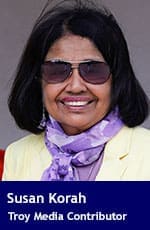International report spotlights rising religious persecution while Western nations look the other way
 The latest religious freedom report by Aid to the Church in Need (ANC) raises concerns about increasing religious persecution worldwide and its connection to Western nations prioritizing economic interests over human rights.
The latest religious freedom report by Aid to the Church in Need (ANC) raises concerns about increasing religious persecution worldwide and its connection to Western nations prioritizing economic interests over human rights.
Titled Persecution Worsens and Impunity Reigns, the report sheds light on the current state of religious freedom globally, emphasizing a muted response from the international community towards atrocities committed by “strategically important” regimes, such as China and India. Additionally, nations like Nigeria and Pakistan appear to escape international sanctions for religious freedom violations, fostering a culture of impunity where religious minorities endure severe persecution.
The report attributes part of this apathy and indifference, or the prioritization of economic interests, to predominantly secular Western nations. It notes a growing curtain of indifference that shields vulnerable faith communities, with religious freedom slipping down the hierarchy of human rights priorities, overshadowed by issues like gender, sexuality, and race.
Marie Claude Lalonde, Canadian director of ACN, points out that Western countries often fail to recognize freedom of religion as a primary human right. Economic considerations, including trade relations with countries like China and India, tend to take precedence over human rights concerns.
Marcela Szymanski, Head of International Advocacy for ACN and Editor of the Religious Freedom Report, agrees that autocratic leaders who violate religious freedom often escape justice due to their economic influence. Western leaders are reluctant to confront these leaders as they depend on them for essential resources like fossil fuels and minerals.
“The brutality and shamelessness of autocrats has increased,” she told me in a telephone interview shortly after her return home from Madrid, where she presented the report at a press conference in ACN’s Spanish headquarters.
The report, spanning 900 pages and published in six languages, offers a comprehensive view of the worsening trend of religious persecution affecting 4.9 billion people in 61 countries (terrorist attacks, destruction of religious heritage and symbols in Turkey and Syria, electoral system manipulation in Nigeria and Iraq, mass surveillance in China, draconian anti-conversion laws and financial restrictions in Southeast Asia and Middle East). It underscores that the severity and frequency of acts of religious persecution have increased, with authoritarian governments emboldened by international inaction and their citizens’ own fear or apathy. All religious minorities, and in some cases religious majorities (Nicaragua, Nigeria), suffered from increased suppression of religious freedom, the ACN report states.
While most countries noted for extreme and violent acts of persecution are in the global South, Western countries such as Canada do not go unscathed for their failure to address the issue.
In fact, the report suggests that Western nations are complicit in international religious persecution for failing to call leaders of offending nations to account and for turning a blind eye to religious freedom violations, particularly when committed by countries that are valued as trading and business partners.
However, action against autocrats can produce results. For example, international sanctions against Nicaraguan dictator Daniel Ortega (noted for persecuting the Catholic Church) compelled him to release 200 political prisoners.
What can we, as Canadians, do to help the persecuted?
Well, we can start by pressuring our government to honour its obligations under the International Covenant of Civil and Political Rights of which Canada is a signatory.
Szymanski had another suggestion: people can also engage with their church in reaching out to help victims of religious persecution and natural disasters.
Susan Korah is an Ottawa-based journalist. This article was submitted by The Catholic Register.
For interview requests, click here.
The opinions expressed by our columnists and contributors are theirs alone and do not inherently or expressly reflect the views of our publication.
© Troy Media
Troy Media is an editorial content provider to media outlets and its own hosted community news outlets across Canada.


